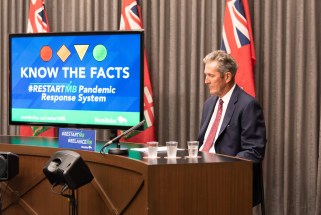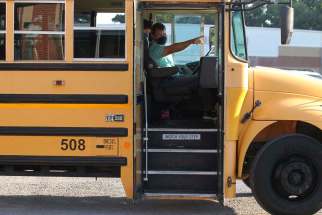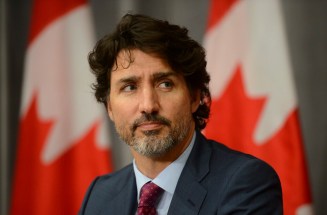No last-second heroics to save CFL season
Read this article for free:
or
Already have an account? Log in here »
To continue reading, please subscribe:
Monthly Digital Subscription
$0 for the first 4 weeks*
- Enjoy unlimited reading on winnipegfreepress.com
- Read the E-Edition, our digital replica newspaper
- Access News Break, our award-winning app
- Play interactive puzzles
*No charge for 4 weeks then price increases to the regular rate of $19.00 plus GST every four weeks. Offer available to new and qualified returning subscribers only. Cancel any time.
Monthly Digital Subscription
$4.75/week*
- Enjoy unlimited reading on winnipegfreepress.com
- Read the E-Edition, our digital replica newspaper
- Access News Break, our award-winning app
- Play interactive puzzles
*Billed as $19 plus GST every four weeks. Cancel any time.
To continue reading, please subscribe:
Add Free Press access to your Brandon Sun subscription for only an additional
$1 for the first 4 weeks*
*Your next subscription payment will increase by $1.00 and you will be charged $16.99 plus GST for four weeks. After four weeks, your payment will increase to $23.99 plus GST every four weeks.
Read unlimited articles for free today:
or
Already have an account? Log in here »
Hey there, time traveller!
This article was published 19/08/2020 (1939 days ago), so information in it may no longer be current.
The outcome was inevitable. The Canadian Football League cancelled its 2020 season on Monday, after officials were unable to convince the federal government to provide the league with a $30-million interest-free loan.
League commissioner Randy Ambrosie said he was disappointed the CFL couldn’t come to an agreement with Ottawa. Winnipeg Blue Bombers president and CEO Wade Miller went further, calling the federal government’s decision “astounding.” He accused Ottawa of not being truly committed to the CFL’s concept of an abbreviated season, which the league was hoping to play in Winnipeg under the “hub-city” model adopted by other professional sports leagues.
It was surely a disappointing day for CFL fans who, for the first time since 1919, will not see the Grey Cup presented in 2020. For Manitoba, it means whatever economic spinoffs governments and businesses – especially those in the hospitality industry – were hoping Winnipeg’s hosting of the shortened season would achieve are now gone.
The hub-city model never really had a chance of working for the CFL; not without fans in the stands. The proposal was a Hail Mary from the very beginning. The CFL is a gate-driven league; its primary sources of revenue are ticket sales, concessions and corporate sponsorship at games. While the CFL does generate some TV revenue, it’s nowhere near enough to cover its costs, including the additional expenditures associated with quarantining players, coaches and staff.
Until governments allow stadium-sized crowds again, the existing CFL model is not financially viable. Unfortunately, it will be some time before fans can attend live sporting events again; probably not until a safe and effective vaccine for COVID-19 is widely available.
The CFL is not a financially healthy league even during non-pandemic times. Mr. Ambrosie has said the league collectively lost about $20 million last season. The Bombers, a community-owned enterprise that normally draws some of the largest crowds in the league and has a committed fan base, barely break even. The club even loses money some years after accounting for its share of a stadium loan on which it’s required to make payments (when it has the “excess cash” to do so).

The concept of holding an abbreviated season with no fans in the stands, in a league that already struggles financially year after year, never had much chance of succeeding.
The inability to secure a federal loan wasn’t the only reason the season was cancelled. The league had also failed to come to an agreement with its players’ association on a new collective agreement for 2020, which would have been required to allow for an abbreviated season. The players also overwhelmingly rejected a proposal to play for 33 per cent of their normal salaries this year; while representatives from the players’ association said they had recently made some progress on a new agreement, it was far from a done deal.
The federal government made the right decision in turning down the loan request. There was little to no chance it would ever be repaid, given the CFL’s weak financial position and its uncertain future.
The league will now have to look at next year and beyond to see if it can find a more sustainable business model; one that will have to consider the possibility of a continued restriction on large gatherings in 2021. As it turns its attention to creating a gameplan focused on longer-term viability in the aftermath of the COVID-19 pandemic, the CFL will have some difficult decisions to make in the coming months.













